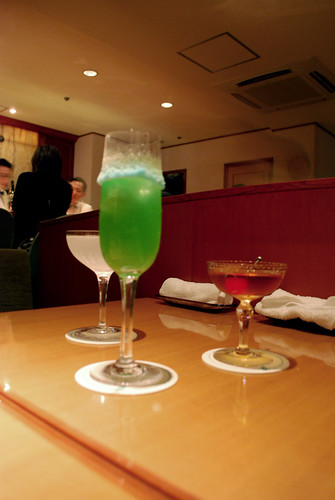
{Photo by rocketlass.}
Pickwick Week deserves at least one more post, and I'll try to get to that tomorrow, but today I can't help but digress. I'm hip-deep in Richard Holmes's Shelley: The Pursuit (1974), and I've been brought to laughter by an explanatory note. In recounting the nineteen-year-old Shelley's sojourn in the Lake District in late 1811, Holmes tells of Shelley's disappointment when, having assumed he'd make the acquaintance of the Lake District trifecta of Wordsworth, Coleridge, and de Quincey, he instead managed only a meeting with the far less interesting Robert Southey.
"Coleridge," writes Holmes, "was away lecturing in London that winter, and Wordsworth remained deep in hibernation at Grasmere." To which explanation he appends the following note:
Both poets were in the middle of a bitter quarrel, which seems to have been started by a minor misunderstanding of certain remarks that Wordsworth made to Coleridge's host in London Basil Montagu, about Coleridge being "a rotten drunkard" and "an absolute nuisance in his family."Now, I fully realize that I could with very little effort gain access to multiple accounts of this incident that would clarify the details of that quarrel; Holmes himself cites Mary Moorman's 1965 biography of Wordsworth, while just a couple of years ago Adam Sisman published a full (and, if Sisman's track record is any guide, well-written) account of the friendship between Wordsworth and Coleridge.
That said, I prefer tonight to choose, however temporarily, ignorance--because that allows me to pose the question: how on god's green earth could a person possibly misunderstand a friend's description of him as "a rotten drunkard" and "an absolute nuisance"?! I imagine that Coleridge's eventual explanation had to be a bit tortured--perhaps he drew on this quotation from Samuel Butler's "Miscellaneous Thoughts," which he would later include in his Biographia Literaria (1817):
The metaphysic's but a puppet motionOh, fine. If you insist, I'll go consult Sisman and report back.
That goes with screws, the notion of a notion;
The copy of a copy and lame draught
Unnaturally taken from a thought:
That counterfeits all pantomimic tricks,
And turns the eyes, like an old crucifix;
That counterchanges whatsoe'er it calls
B 'another name, and makes it true or false;
Turns truth to falsehood, falsehood into truth,
By virtue of the Babylonian's tooth.
P. S. Have I mentioned that I love footnotes?
I don;t care so much about the argument (though I loved Holmes's book when I read it in the early 70s, the period for which it was written), but I want to know what the Babylonian's tooth is.
ReplyDeleteYeah, I wondered that, too. The best I can figure from some relatively cursory investigation is that this is a reference to the Babylonian eye-for-an-eye, tooth-for-a-tooth code. Maybe Butler is saying that all it takes is a bit of metaphysical sophistry for a person to transform the tooth-for-tooth into falsehood-for-truth?
ReplyDeleteThat does still seem a stretch, doesn't it? I may have to dig up a nice annotated volume of Butler to see what I can learn.